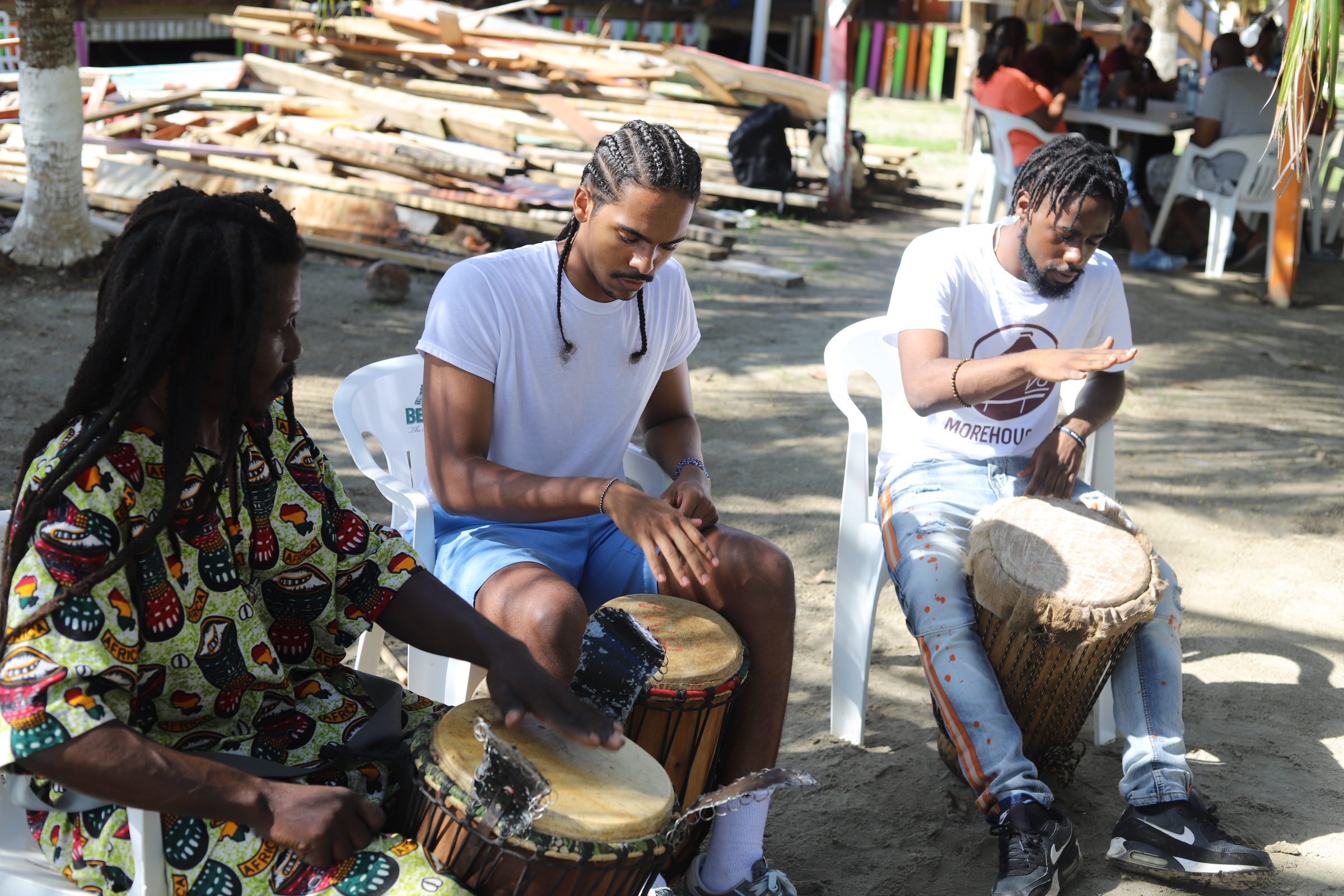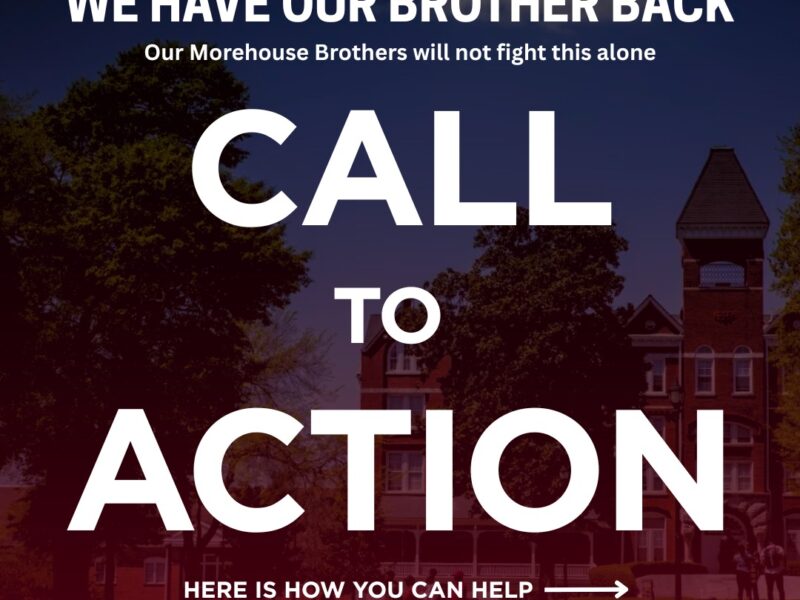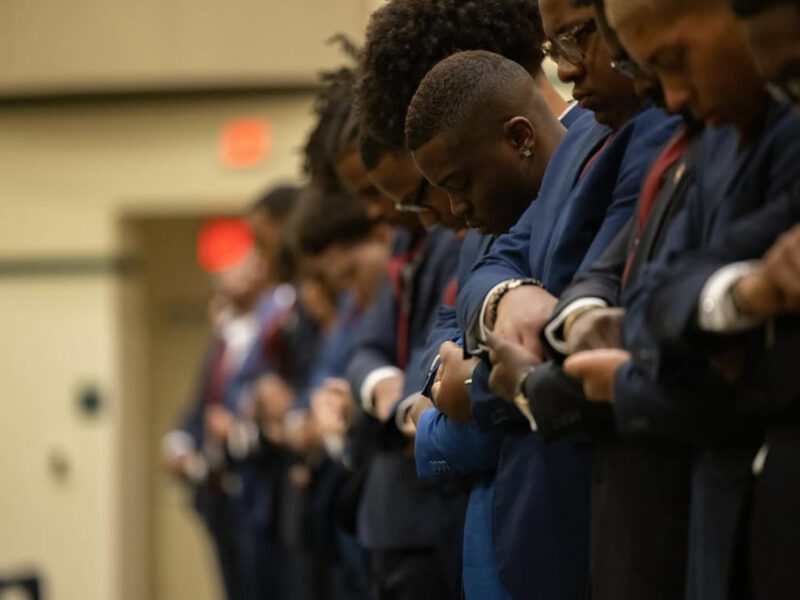Morehouse College Students Embrace Belize History and Culture

Photo by Andy Harris
By Auzzy Byrdsell, MT Secretary
From climbing the Mayan temples to exploring the inner city of Belize City and celebrating the Garifuna culture, young Black American students have been immersed in the rich Belizean culture.
Twenty-two students, faculty, and staff from Morehouse College traveled throughout Belize in a study abroad experience that began on Dec. 10. During the course of 11 days, we had an array of experiences that shaped our perspectives about the life and culture of people in this beautifully complex country.
This trip was part of the Morehouse Pan-African Global Experience, otherwise known as MPAGE II. Because Morehouse is a historically Black college, we annually orchestrate a study abroad trip to a country that was impacted by slavery. This gives students a rare chance to gain first-hand familiarity with other African descendants, and it often provides them with their first international opportunity. Since 2016, MPAGE II has visited Cuba twice, Ghana, Ecuador, and Mexico.
Kevin Booker, a 1991 Morehouse graduate, is vice president of student services and the dean of the College. He traveled with students on the majority of the MPAGE II trips.
“It’s understanding the culture of the region that we’re visiting; understanding the African Diaspora culture within that culture,” Booker said, explaining the program’s significance.
I am a junior kinesiology major and journalism minor who has frequently traveled abroad, however, I just participated in my first MPAGE II trip. After flying into Belize City, our group of 15 students from all-male Morehouse, one student from its all-female sister school Spelman College, and six Morehouse faculty/staff members explored Belize culture, history, and cuisine all over the country.
One of the biggest impacts of slavery was that people of African descent have reached almost every part of the globe, but somehow we all still face some of the same hardships in the form of oppression, economic inequity, and blatant racism. However, we often become blind to the fact we are all connected through these experiences.
Fortunately, Booker and other MPAGE leaders made it their priority to expose students to the realities of Belize, including the gentrification, cultural suppression, and colorism that plague it even today.
With Belize native Jerry Enriquez, who organized the itinerary and coordinated the activities, we explored Belizean media and traditional Garifuna, Creole, and Maya culture. This included their history, music, dance, cuisine, and healing practices. To do that, we traveled by bus to Belize City, Bermudian Landing, Belmopan, San Ignacio, the Spanish Lookout Mennonite Community, and Hopkins Village, and by boat to Caye Caulker Village.
“I organized the activities to expose the students to the traditional African and indigenous experiences in Belize,” Enriquez said. “ (It was important) so that the students become more aware of the interconnectedness of the issues affecting these groups in Belize and several other countries.”
Among the 16 students, there were majors in economics, finance, journalism, physics, and more, and everyone who wants to can contribute to a media project we are creating about what we have experienced.
Steven Adams II, a senior economics major, is one of those students. The real estate struggle in Belize related to his experience facing gentrification in Washington, D.C. This and his economic studies will help him put together a great article.
We applied our knowledge and curiosity consistently in each of our activities. We discussed the power dynamics in Belize’s never-ending struggle for land ownership, the Mennonites’ domination of the food supply, efficiency in oil extraction, solutions for clearing waste, and new efforts to increase literacy among the Black and brown populations. We are learning where we can all play roles in transforming the world.
Jordan Coney, a senior physics major, has used his expertise in STEM to ask questions about how science is being used in Belize.
“What I thought was the most interesting was the pursuit of alternative energy sources and understanding the finality of fossil fuels and how they connect our ecosystem at large,” Coney said.
Joseph Ramirez, a senior finance major at Morehouse, was appalled when he saw how well the Mennonites live in comparison to their neighboring communities. He used his studies to help think of solutions for Belizean infrastructure and modernization.
“I believe the country should take an approach and create non-governmental organizations dedicated to rebuilding and maintaining infrastructure,” he said. “Create jobs with higher pay, and prioritize infrastructure in the housing, food, healthcare and education sectors.”
Our versatility has taught us what kind of unity it will take for Black people globally to overcome the problems we all fight. Unity is much more than agreeing that we have an obstacle that deserves our focus. This is only the first step. We must also be receptive to each other’s knowledge and ideas.
This is the goal of the well-balanced students at Morehouse College. As we continue to make excellence a habit, we want to share this ambition with our people abroad and strengthen our global community.
To learn more about Morehouse College, our students, and our culture, please go to morehouse.edu or click here.






